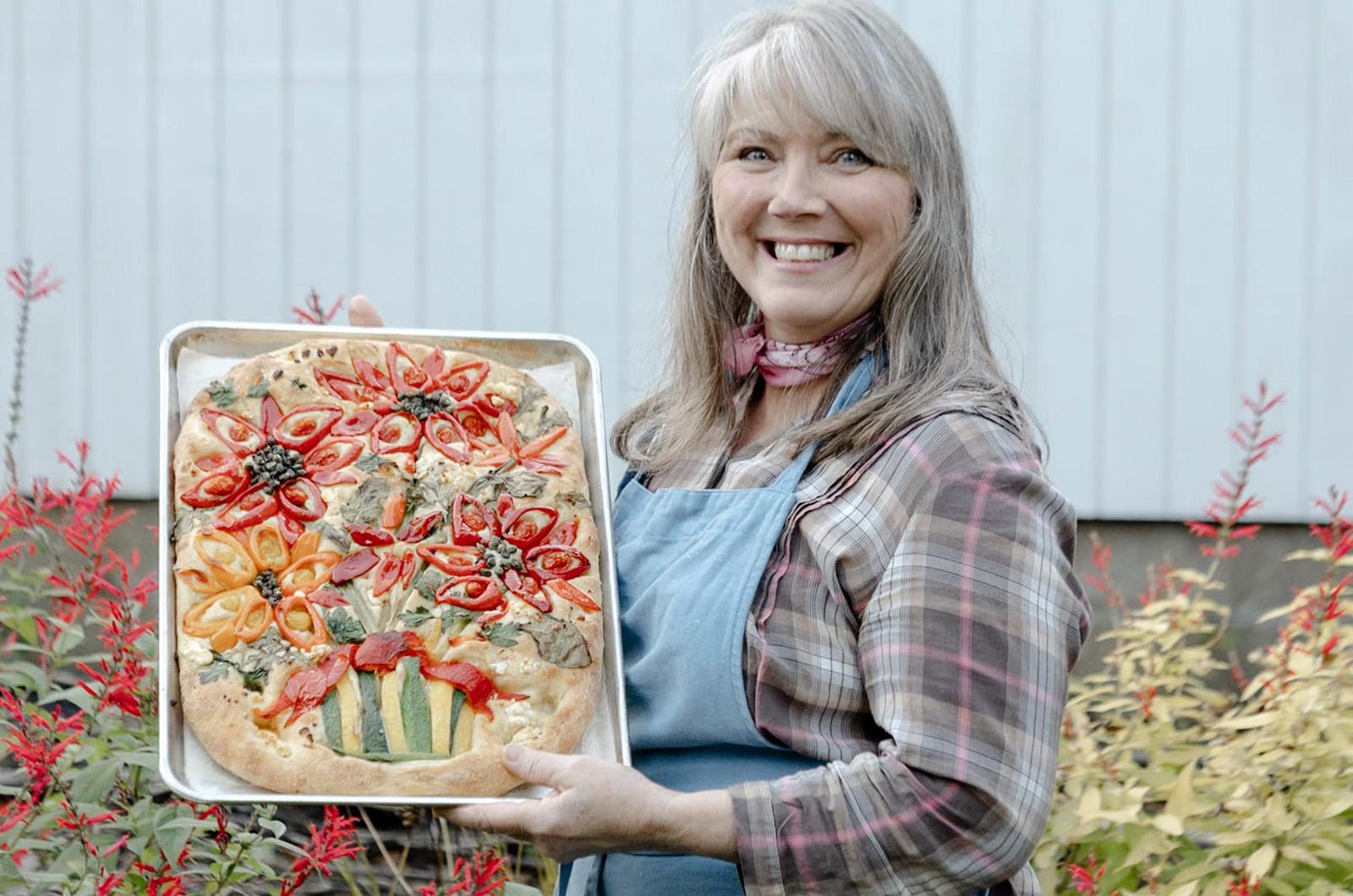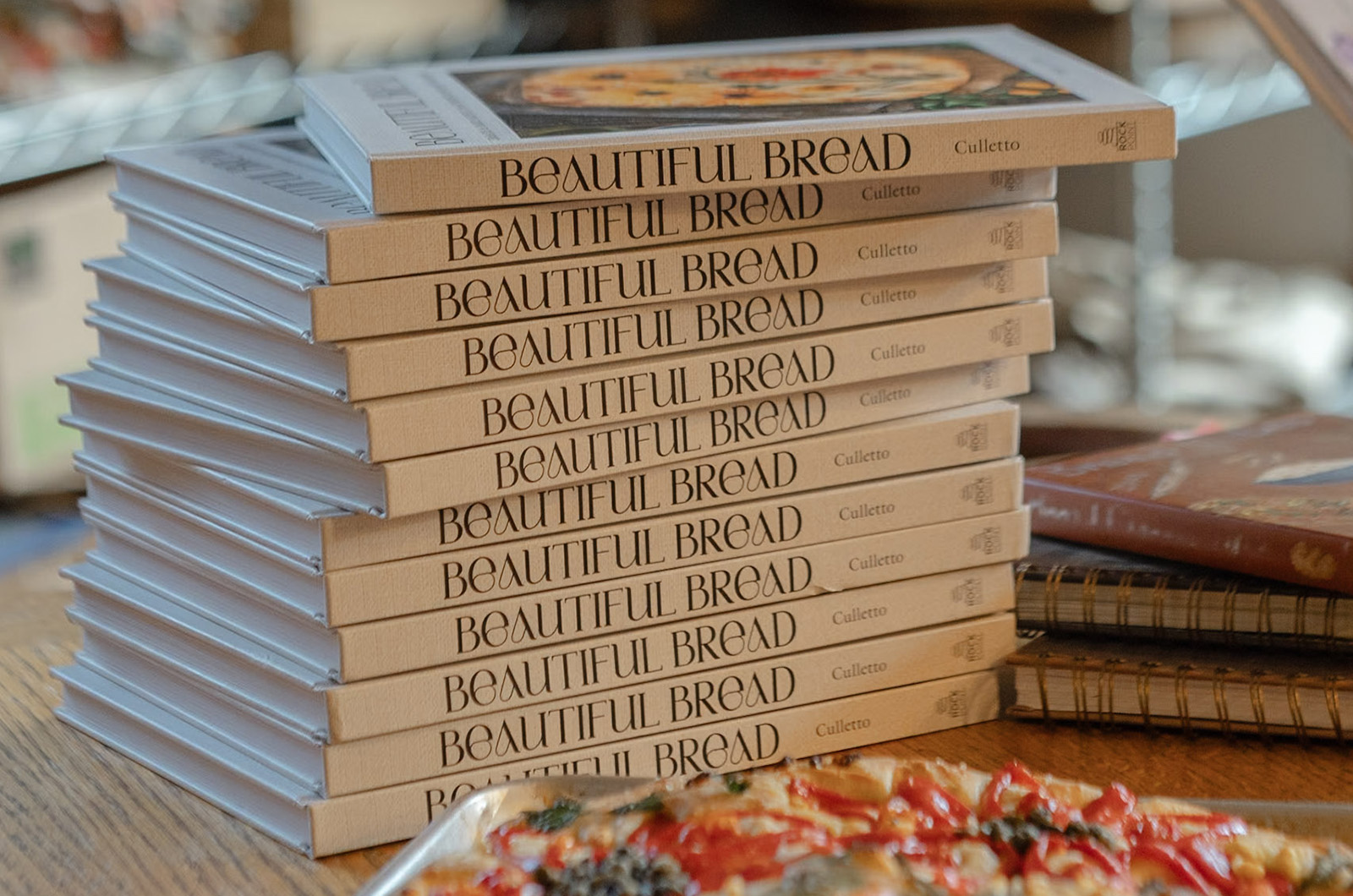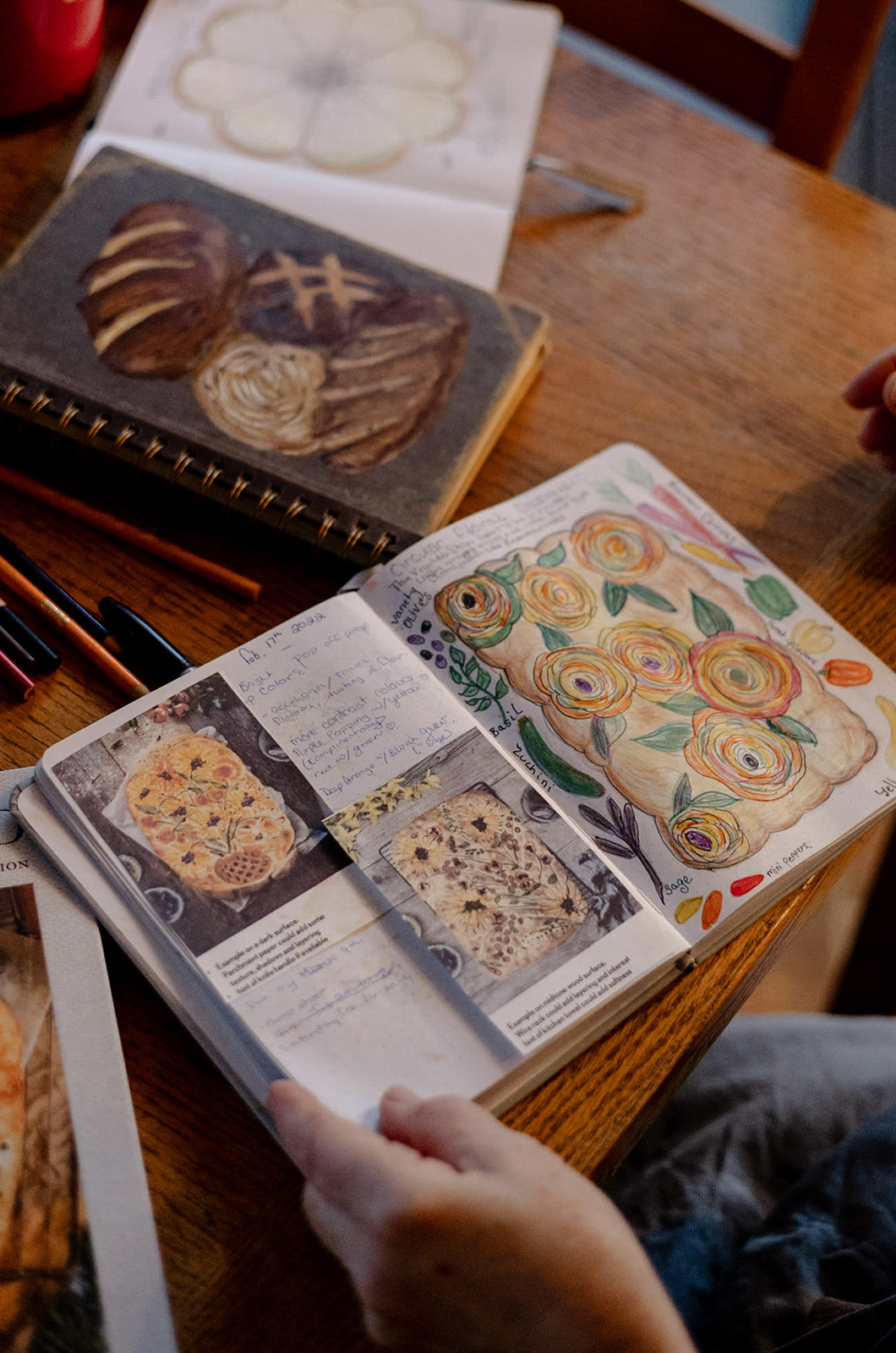Theresa Culletto, better known to pupils and fans as the Vineyard Baker, is prone to long and yeasty digressions.
In an interview with the Gazette this week about her first cookbook, Beautiful Bread, Ms. Culletto meandered through tales of bread baking and history, expounding on the international variations of flatbread and the history-changing invention of the Parker House roll.
But those digressions are all part of Ms. Culletto’s ethos, a legacy enthralled by the magic of bread. After 40 years as a baker on the Vineyard, teaching dozens of courses and selling thousands of loaves, Ms. Culletto’s new book is the culmination of that passion and her mission to spread it.
“I love discovering the world through bread,” Ms. Culletto said. “I honestly just wanted to pass along really good bread. I feel bad for people who buy bread in the store.”
Ms. Culletto’s love affair with baking began as a child, watching her grandmother make traditional Slovakian kolache bread.
“I would sit in her kitchen and watch her,” she said. “It was just part of the natural order of things.”
Her interest was bolstered at the age of seven when she was gifted an Easy-Bake Oven. She quickly worked her way through all the materials included, before developing her first original recipes.
Later on, while raising four boys as a single mother on the Vineyard, baking bread became a way to make ends meet.
“In order to keep the family together and keep everything going, I was making them bread,” she recalled. “I knew what really good bread was, and I didn’t want them to be denied that.”
But word of Ms. Culletto’s skills soon spread beyond her household, with friends and potluck-goers encouraging her to take her baking retail. With the help of a donated oven and “the oldest Hobart mixer in the world,” she brought that dream to fruition, selling loaves to Cronig’s and Morning Glory Farm, as well as at her own farmers’ market stand.
It was a true family business, she recalled.
“Those poor boys...they would be down in the living room playing Nintendo, and I’d say ‘Alright, time to rack and bag,’” she said, adding that her sons always got crusty bread out of the deal.
Later, Ms. Culletto scaled back her baking after she took a job at the hospital, but the itch to spread her love of loaves never went away. Ms. Culletto approached ACE MV with a plan to teach adult baking classes.
“I bribed them, I went over there with a basket full of treats and croissants,” she said. “I gave them a proposal, I said, ‘You need a bread baker, you need bread baking courses, I want to teach.’”
Ms. Culletto first taught at ACE MV and now teaches regular classes at the Farm Institute.
It was at one of those classes, teaching Italian focaccia-making, that Ms. Culletto debuted the technique that is the basis of her cookbook: using sliced veggies and herbs to create elaborate floral loaf designs.
“It was Valentine’s Day, so I said ‘Let’s all decorate a loaf for our sweetheart,’” she said. “That was the last class before Covid.”
As her classes came to a halt during the pandemic shutdown, Ms. Culletto decided to try promoting her technique online.
“It was about the stay-at-home projects,” she said. “I literally had no clue what I was doing. I opened up social media and said, ‘Hey, stay at home and here’s a fun project for beginner bread bakers.’”
Her project found immediate viral success.
“I gained 23,000 followers in one day,” she said, and her recipe ended up in The New York Times and on Good Morning America. Soon after, a publisher approached her about making a cookbook based on her floral focaccia — a dream come true for Ms. Culletto, who owns more than 100 bread cookbooks.
Focaccia, said Ms. Culletto, was the perfect topic, an easy bread for beginner bakers to practice their skills.
“I always recommend that people work with your hands first, because your hands are teaching your brain things,” she said.
Now that her first book is out Ms. Culletto plans to double down on her baking education, to get “fully immersed in all things bread.”
Her philosophy goes back to the word companionship, she said, and its Latin root pan, which means bread.
“We all have companions and people that we like to be around, and the word . . . it means to share bread,” she said. “It’s all about sharing good bread with good people.”









Comments
Comment policy »